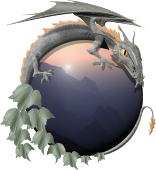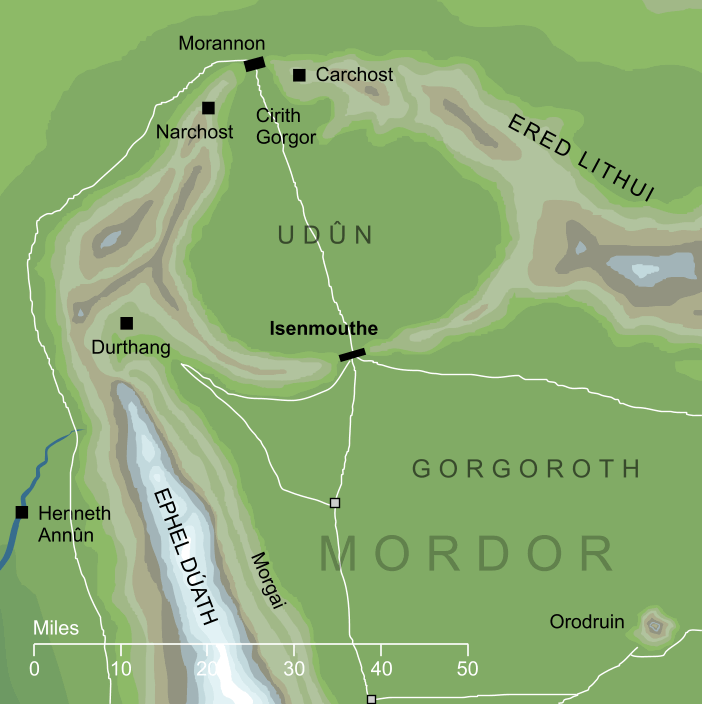- Cities and buildings
- Fields, plains and deserts
- Forests
- Hills and mountains
- Islands and promontories
- Lands, realms and regions
- Rivers and lakes
- Seas and oceans


 |
||||||
|


Which personality type are you?
Take the Free mydiscprofile Personality Test to discover your core personality and your ideal job.   Which personality type are you? |
|
Dates
Mordor was fortified by Sauron from c. II 1000, but fell under Gondorian control II 3441 - c. III 1980; Sauron was finally ejected in III 3019
Location
Race
Pronunciation
eye'senmouthe ('eye' as in the English word 'eye'; the final '-the' is probably pronounced as in the word 'lathe')1
Meaning
'Iron jaws'2
Other names
Indexes: About this entry:
|
IsenmoutheThe iron jaws to the south of Udûn
The Mannish name for the narrow pass in northwestern Mordor called Carach Angren in Elvish. Both names have the same meaning: the Iron Jaws. The Isenmouthe lay some thirty miles southeast of the Morannon, and led from the valley of Udûn into the wide and desolate lands of the Plateau of Gorgoroth. This pass formed part of the inner defences of Mordor, and Sauron had built a rampart and a ditch across the opening to repel any invaders who might breach the Black Gate of his land. Notes
See also...Indexes: About this entry:
For acknowledgements and references, see the Disclaimer & Bibliography page. Original content © copyright Mark Fisher 1998, 2001, 2009, 2015, 2017. All rights reserved. For conditions of reuse, see the Site FAQ. Website services kindly sponsored by Discus from Axiom Software Ltd.Especially where DISC is used in recruitment, Discus' automated Job Matching can give you an invaluable advantage. |